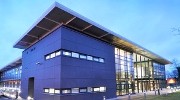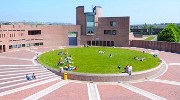Science for Life Schools Programme
The MTU CORK CAMPUS Science for Life Programme is a MTU Access Service - Cork campus initiative in collaboration with MTU School of Science.
The main aim of the programme is to encourage, support and motivate students to study science at junior and senior cycle level in post primary schools and to study science at third level.
MTU’s ‘Science for Life’ Programme has increased the number of workshops in Access Linked Schools in the past number of years. We continue to lead students towards third level education by making learning as much fun as possible. We aim to achieve this by helping students to focus on science at junior cycle with lots of fun workshops, allowing students hands on experience science in Transition Year with field trips and helping students achieve their goals through academic support in senior cycle.
Our workshops start out being incredibly fun, messy and colourful. Junior cycle students can take part in a variety of activities outlined below e.g. exploding volcanoes or making lava lamps. Gradually the workshops become more challenging (senior electronics workshop) and lean towards academic support as the senior students get nearer the Leaving Certificate. All workshops aim to help students enjoy science more and enable students to link all aspects of science with every day life.
Senior Cycle Workshops
Tour of MTU Cork Campus and facilities
Students visit MTU and take a tour of the Cork campus and facilities, including the science labs and also meet with lecturers and students.
Electronics workshop
This workshop is an interactive engineering workshop designed to demonstrate how electronics has evolved to bring us the sophisticated technology we are accustomed to using today. Students will be guided through a series of designs using CAD tools and electronic hardware designed to enhance their understanding and appreciation of engineering and technology (in conjunction with Cork Electronic Industry Association (CEIA)). (2.5 hrs, school lab based)
Careers workshop
This workshop informs your students of the courses that are available in MTU, helps your students to focus on a potential career and helps them work towards it. (1 hr 20 mins)
CAO workshop (parent and student information sessions)
This workshop aims to help your students choose the right course, for the right reasons (in conjunction with MTU Access Service Schools Team).
Easter Workshops and Revision Days
Leaving Certificate students can receive academic support in Biology, Chemistry, Physics, and Mathematics in preparation for the Leaving Certificate examinations (in conjunction with Post Entry Support Programme). (MTU based)
MTU Cork campus Lab Practicals
MTU based sessions in the MTU Cork science laboratories during the month of January. These sessions are aimed at senior cycle students. MTU Access linked schools can avail of these sessions to help students to successfully prepare for practical experiments examined on the Leaving Certificate Science curriculum. (MTU Cork Campus based)
Teachers Information Session
Teachers can avail of the opportunity to visit MTU and see what the college has to offer. Teachers can meet with lecturers and students, and get a tour of the facilities on the Bishopstown campus. This will be followed by lunch. (MTU Cork Campus based)
Parent & Student Study Skills workshop
This workshop will help your students get the most from their classes. This workshop explains useful study and time management techniques (in conjunction with MTU Cork Campus Post Entry Support Programme. Parent workshops will be school based, while student workshops will be MTU Cork Campus based. (1 hr approx.)
Junior Cycle Workshops
Fun workshops are 1hr 20 min and are school lab based.
Reactions workshop - iodine Snake
Chemistry is the coolest science of all.
It is the dirtiest and most colourful. In this reactions workshop your students can learn how chemicals react with one another by making an Iodine snake - while having lots of messy fun.
Reactions workshop - exploding volcano
Chemical reactions are continually occurring in the world around us. In this reactions workshop students build their own volcano and using reagents from the kitchen cupboard make it explode with lava. It’s hands on, colourful learning.
Plastics workshop
Plastics (chemicals) are a very important part of everyday life. In this workshop each student makes Slime in the colour of their choice. Students learn that chemical reactions are very messy and fun.
Immiscible & Miscible Liquids workshop
All solutions are liquids, some liquids dissolve in each other and others do not. In this workshop students learn about miscible and immiscible liquids in a hands on, colourful and fun way by making lava lamps and Mayonnaise.
Mayonnaise is an emulsion, which is a mixture of two liquids that normally can’t be combined. Combining oil and water is the classic example. Emulsifying is done by slowly adding one ingredient to another while simultaneously mixing rapidly. This disperses and suspends tiny droplets of one liquid through another. However, the two liquids would quickly separate again if an emulsifier were not added. Emulsifiers are liaisons between the two liquids and serve to stabilise the mixture. Eggs and gelatin are among the foods that contain emulsifiers. In mayonnaise, the emulsifier is egg yolk, which contains lecithin, a fat emulsifier.
Acids and bases workshop
It is a common perception that acids are dangerous fuming liquids, yet most are quite harmless and we even eat acid on our chips. In this workshop students make their own pH indicator and then test household products and foodstuff using their own indicator and universal indicator paper. It is easy, fun, practical learning.
Build an Electrical Motor workshop
In 1821, Michael Faraday demonstrated the conversion of electrical energy into mechanical energy by electromagnetic means. Since this, motors have evolved to have many diverse applications from power tools to disk drives and household appliances. In this workshop students will build and test a simple electrical motor.
Camera Obscura workshop
This is an optical device that projects an image of its surroundings on a screen. It is used in drawing and entertainment and was one of the inventions that led to photography. The device consists of a box or a room with a hole in one side. Light from an external scene passes through the hole and strikes a surface where it is reproduced upside down but with colour and perspective preserved. In this workshop students will attempt to create their own camera obscura from their classroom.
Electronics workshop
Electronic devices surround us in our everyday life; all of these devices are tiny electrical circuits (iPOD’s, mobile phones and calculators). In this workshop students use batteries, LED’s, bread boards and Vero boards to build their own circuits, it’s practical, busy, hands on learning.
Health and Hygiene workshop
Ireland in the 21st century is a very modern society, we have a huge variety of food and drink at our disposal and we have also become host to diseases and pathogens like obesity, swine flu and MRSA. In this workshop students learn about health, hygiene, and food, the importance of all three in everyday life and exactly what is in our food. Students become analytical scientists and measure how much salt and fat is in a bag of crisps? Or how much sugar is present in a bottle of coca cola? Students learn in a fun way that science pervades all aspects of human life and that each aspect is a combination of all the sciences.
Body Parts workshop
In this workshop, students learn about the body parts that make up the human body and how science and engineering has evolved to contribute to the body’s ability to function normally, following accident or illness, through prosthetics and other biomedical devices. Cork has a large biopharmaceutical and medical device industry, which has longstanding links with MTU.
Fingerprintinig workshop
Forensic Science is an important part of society that enables the Gardaí and Department of Justice to establish the chain of events at the scene of a crime and to identify the person or persons who committed the crime. A good forensic scientist needs to be observant and meticulous as they process the scene of a crime. They will examine the area carefully and record all fingerprints, fibres from clothing and signs of bodily fluids. Fingerprint analysis is the most well-known use of forensic science. Each fingerprint has a pattern of fine skin ridges that are unique to each individual – even identical twins have a slightly different pattern fingerprint, though their DNA is 100% similar.
A fingerprint that is found at the scene of a crime is usually composed of grease and dried sweat that are on an individual’s fingertips. Although everyone’s fingerprint is unique, they can be grouped into fingerprint families. In the fingerprinting workshop, you will take fingerprints from your partner and compare and contrast them with the different groups of fingerprint families, their own fingerprints and the fingerprints from the rest of the class.
-------------------------------------------------------------------------------------------------------------------------------------------------------------------------
Additional specific science sessions can be tailored to meet the demands of each participating school. To find out more information, please contact:
Róisín Ormond,
Science for Life Officer,
Access Service,
Munster Technological University,
Bishopstown, Cork.
M: 0879325669
E: roisin.ormond@mtu.ie / accesscork@mtu.ie






